Uncategorized
-
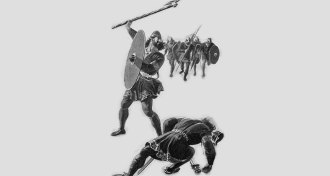 Anthropology
AnthropologyBig Viking families nurtured murder
Vikings in Iceland got a murderous boost from having large extended families.
By Bruce Bower -
 Physics
PhysicsRarest nucleus reluctant to decay
Tantalum-180m has a half-life more than a million times the age of the universe.
-
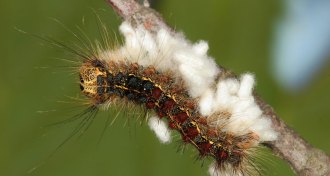 Animals
AnimalsNew book tells strange tales of evolution
'The Wasp That Brainwashed the Caterpillar' features a cadre of critters that have evolved seemingly bizarre solutions to some of life’s biggest problems.
-
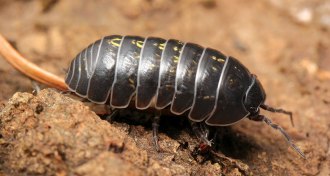 Genetics
GeneticsTo make female pill bugs, just add bacterial genes
Genes from Wolbachia bacteria infiltrated pill bugs and now make genetic males female.
By Susan Milius -
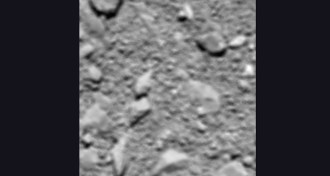 Planetary Science
Planetary ScienceRosetta spacecraft ends mission
The Rosetta mission comes to an end as spacecraft touches down on surface of comet 67P/ Churyumov–Gerasimenko.
-
 Cosmology
CosmologyAfter Big Bang, shock waves rocked newborn universe
Shock waves in the early universe could explain the generation of magnetic fields and the predominance of matter over antimatter.
-
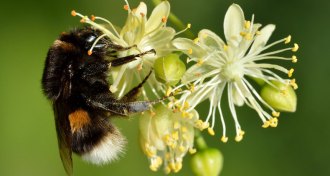 Animals
AnimalsPrimitive signs of emotions spotted in sugar-buzzed bumblebees
When bumblebees eat a sugary snack, they make more optimistic decisions, a new study finds. This could be early evidence for emotion in insects.
-
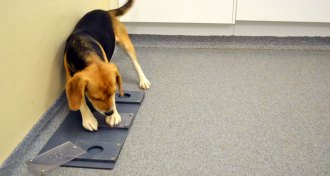 Genetics
GeneticsGene linked to autism in people may influence dog sociability
DNA variants were linked to beagles’ tendency to seek human help.
-
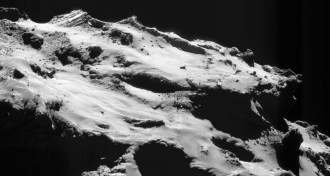 Planetary Science
Planetary ScienceSo long, Rosetta: End is near for comet orbiter
During its time in orbit around comet 67P, the Rosetta spacecraft discovered diverse terrains, organic molecules and a source of water quite different from Earth’s oceans.
-
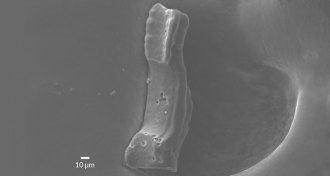 Earth
EarthGlass bits, charcoal hint at 56-million-year-old space rock impact
Glassy debris and the burnt remains of wildfires suggest that a large space rock hit Earth near the start of the Paleocene-Eocene Thermal Maximum warming event around 56 million years ago.
-
 Health & Medicine
Health & MedicineConcern expands over Zika birth defects
Infection with Zika virus in utero can trigger a spectrum of birth defects beyond microcephaly, and could potentially cause long-term health problems as well.
By Meghan Rosen -
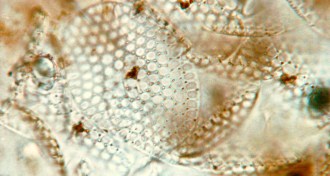 Paleontology
PaleontologyAncient microbe fossils show earliest evidence of shell making
Armor-plated, 809-million-year-old fossilized microbes discovered in Canada are the oldest known evidence of shell making.